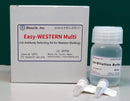- 1.Transportation and storage conditions are shown as T/S code (two alphabets and a number) of each product. The meaning of T/S code is as follows.
Initial alphabet: Storage condition after product arrival (A: 10~35 ˚C, B: 2 to 8˚C、C: below -15 ˚C)
Second alphabet: Transportation condition (A: 10~35 ˚C, B: 2 to 8˚C、C: below -15 ˚C)
Last number: Number of products packable in a minimal size parcel. - 2. For customers of outside Japan: This site is designed to charge transportation cost to each single order. So, if you would like order multiple number of products (including multiple order of the same products) and wish to minimize transportation cost, we recommend to order them from our other site, https://beacle.com/products_en/ by clicking “contact” form.
- 3. If you wish to purchase products that may exceeds more than 20kg dimensional weight, please contact us from our original site (https://beacle.com/contact_en/).
- 1. 注文頂いた製品の輸送は各製品に記載した輸送/保存コード(2つのアルファベットと数値)に基づいて行います。各アルファベットと数値の意味は以下の通りです。 最初のアルファベット:到着後の保存温度(A:常温保存、B:冷蔵保存、C:冷凍保存) 2番目のアルファベット:輸送時の温度(A:常温輸送、B:冷蔵輸送、C:冷凍輸送) 3番目の数値:一つのパッケージで輸送可能な製品数(輸送費はこの範囲の数であれば同じです)
- 2. 国外からの注文の場合:本サイトからの注文ではシステム上1つの製品毎に輸送料が必要となります。複数個(同一製品の複数個の注文含む)を購入する場合で、送料を抑えたい時は、https://beacle.com/products_jp/の“contact” form から注文されることをお勧めします。
- 3. 20kg以上の製品を海外に送る場合の送料に場合には、当社オリジナルサイトの問合せフォーム(https://beacle.com/contact_jp/)からお問合せ下さい。
Description
Product Outline
Easy-WESTERN (EZW) is the primary antibody-detecting kit designed for Western Blotting based on our original MAD (multi-antibody detection) or MAD-II technology. With newly developed MAD-II, essentially all IgG subtypes of all mammal species can be detected, and you will get many advantages, such as high sensitivity, no requirement of second antibody, and quick detection. Three products are available;
●Easy-WESTERN Multi uses MAD-II as primary antibody detection achieving high sensitivity and quick detection.
●Easy-WESTERN-II Super uses MAD and designed for High sensitivity detection
●Easy-WESTERN-II Quick uses MAD and designed for Quick detection
Easy-WESTERN-II Super and Easy-WESTERN-II Quick is the same product except that each working manual is written to optimize the product properties.
These products are obtained directly from us or from our worldwide distributors Cosmo-Bio.
Principle
The most important component of these products is MAD (multi antibody detecting) probe. There are two types of MAD probes, MAD or MAD-II. These probes are nano particles composed of IgG-binding protein with each particle displaying 200 or more binding domain of Fc region of IgG and labeled with about 50 HRP molecules. Because of high amount of IgG binding sites and labeled HRP, IgG are detected with high sensitivity. Though MAD showed weak affinity to a few IgG species, MAD-II shows good affinity of all IgG subtypes of all mammalian species (see below).
MAD: known binding-weak IgGs are mouse IgG1, rat IgGs, goat IgG, human IgG3
MAD-II: all IgG subtypes of mouse, rat, rabbit, guinea pig, goat, horse, donkey, pig, bovine, sheep, dog, cat, monkey, human.
Product Characteristics
The basic components of Easy-Western are MAD regents and MAD dilution buffer. MAD is used as a substitute of 2nd antibody. MAD dilution buffer is used to dilute MAD to eliminate non-specific binding. When using Easy-Western, there are many kinds of ways depending on the purpose. Some of examples are shown below.
1. high sensitivity detection without secondary antibody
With ordinary protocol just change primary antibody to MAD reagents.

2. One step detection with high sensitivity
Mix primary antibody with MAD reagents and react membrane with the mixture.

3. Save time by One-Step detection
Mix primary antibody with MAD reagents and react membrane with the mixture using short time protocol.

4. Signal enhancement of weak signal using ordinary western.
Membrane with weak signal by ordinary secondary antibody method can be enhanced second reaction using MAD reagent.

5. Multiple antigen detection.
By using multiple primary antibodies regardless animal species, multiple antigen detection is possible by a single procedure with MAD reagents.

6. Ultra high sensitivity by using MAD as third reaction.
Using third reaction with MAD after 2nd antibody reaction, .



